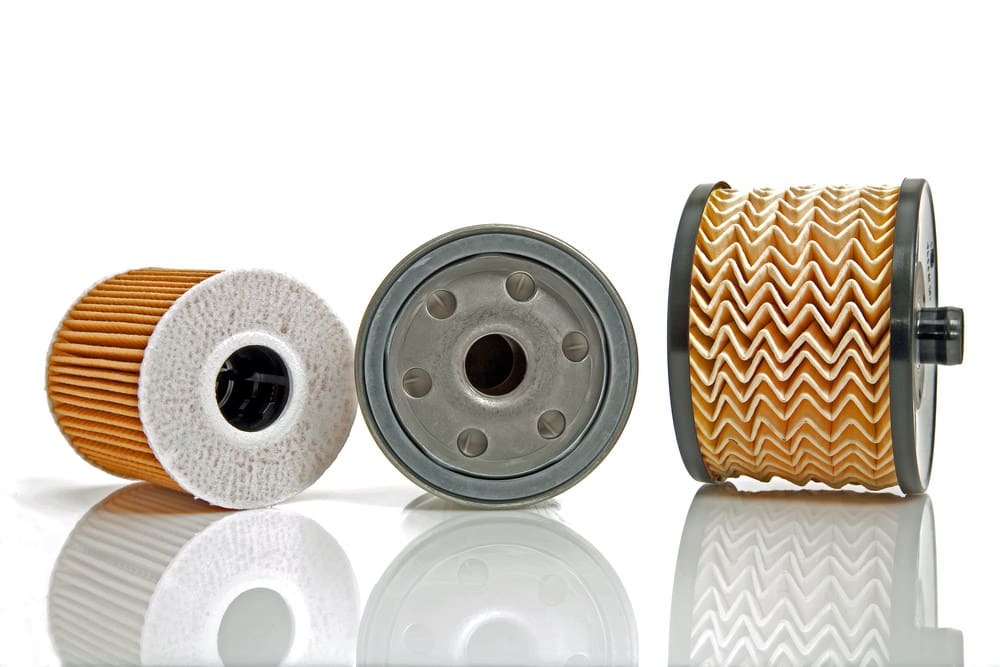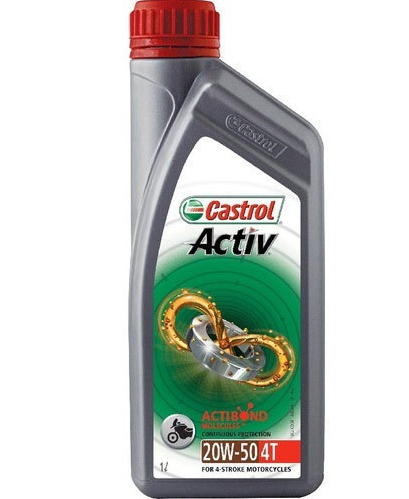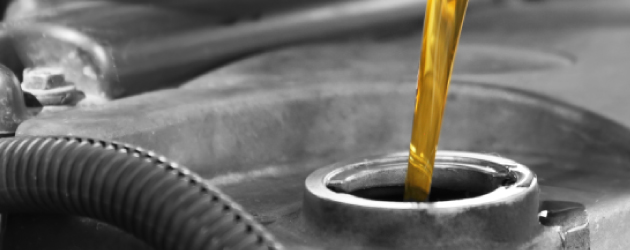There are several types of oil filters, including mechanical, cartridge and spin-on, magnetic, sedimentation, centrifugal, and high-efficiency (HE). Each filter type operates to remove contaminants from engine oil differently.
Navigating through the myriad of oil filters available in the automotive market can be daunting. Engine oil filters play a crucial role in maintaining the health and longevity of your vehicle’s engine by purging impurities that can accumulate over time.
Whether you’re a car enthusiast or a casual driver, understanding the different types of oil filters and their mechanisms helps ensure that your vehicle gets the right type of protection. They range from basic mechanical filters to advanced high-efficiency models designed for superior filtration capabilities. These filters support overall engine performance, ensuring a cleaner, smoother, and more efficient operation that drives enhanced vehicle reliability and maintenance.

Credit: www.mobil.ca
Introduction To Oil Filters
Think of oil filters as the unsung heroes of your engine. They keep the lifeblood of your vehicle free from harmful contaminants. These critical components ensure that your engine runs smoothly, effectively, and has a longer life. Let’s delve deeper into the world of oil filters.
The Role Of Oil Filters In Engine Maintenance
Oil filters play a pivotal role in protecting your engine. They trap dirt, dust, and debris that can cause wear and tear. A good oil filter can mean the difference between an engine that thrives and one that fails prematurely.
Basics Of Oil Filtration
All engines need clean oil to function at their best. The fundamental job of oil filters is to provide a continuous supply of purified oil. They have a filter media that catches and holds impurities while allowing oil to flow to vital engine parts. This is crucial for peak engine performance.
- Cartridge Filters: These are eco-friendly and easy to replace.
- Spin-on Filters: Popular for their convenience, they combine housing and filter element.
- Magnetic Filters: Use magnets to capture metal particles, enhancing filtering capability.
- Sedimentation Filters: Rely on gravity to settle particles at the bottom of the filter.
- Centrifugal Filters: Spin oil to use centrifugal force for particle separation.

Credit: www.yourmechanic.com
Types Of Oil Filters
Every vehicle needs clean oil to function properly. An essential part to maintain this is an oil filter. Different oil filters suit different engines. Understanding each type helps in making an informed choice for your vehicle.
Mechanical Filters
Mechanical filters use a pleated, fibrous material to trap contaminants. As oil passes through, particles get caught in the fibers. These filters are common and must be replaced at regular intervals.
Cartridge And Spin-on Filters
There are two main designs: cartridge and spin-on filters. Cartridge filters contain a paper filter, which catches impurities. Spin-on types are self-contained units, easy to replace. Both play a crucial role in engine health.
Magnetic Filters
Magnetic filters use a magnet to attract metallic particles. They are excellent for capturing very fine particles that other filters may miss. They can be cleaned and reused multiple times.
Sedimentation Filters
Using gravity, sedimentation filters allow heavier particles to settle at the bottom. They are less common in modern vehicles but still found in certain heavy-duty applications.
Centrifugal Filters
Centrifugal filters spin the oil to create a force that separates contaminants from the oil. They are highly effective and often used in industrial settings.
High Efficiency (he) Filters
High Efficiency filters, also known as HE filters, can remove the smallest of impurities. They use advanced filtering materials, providing superior protection for the engine. These filters are especially useful in harsh conditions.
Working Principles Of Oil Filters
The engine’s lifeblood, its oil, requires pristine purity to ensure smooth operation. Oil filters play the crucial role of sieving out unwanted particles, safeguarding engine components from premature wear. Delve into the workings of these filtration systems as we explore varied mechanisms that keep oil contaminant-free.
Mechanical Filtration Mechanism
Mechanical filtration captures particles using a barrier made of materials like paper or synthetic fibers. As oil passes through, contaminants are trapped, preventing them from returning to the engine. The effectiveness depends on the pore size of the filter media, with smaller pores catching finer particles.
Magnetic Filtration Explained
Magnetic filtration uses a magnet to attract and hold metallic particles. This method is often combined with other filtration techniques to improve efficiency, especially in capturing ferrous contaminants that would otherwise circulate and cause damage to the engine.
Sedimentation And Gravity
- Works by allowing solid particles to settle at the bottom due to gravity.
- Most effective for larger, heavier particles.
- Used in tandem with other filtration methods for comprehensive cleansing.
Centrifugal Action In Filtration
Utilizing the principles of centrifugal force, this method spins the oil to sling particles outward. These contaminants then stick to the housing of the filter, allowing the cleansed oil to exit without the impurities.
The Science Behind High-efficiency Filters
Some filters boast advanced filtration media designed to capture more and finer particles without restricting oil flow. These high-efficiency filters balance exceptional filtration needs with the demand for minimal engine performance impact.

Credit: www.mobil.ca
Oil Filter Construction
The oil filter plays a critical role in keeping an engine running smoothly. Its construction determines how effectively it can remove contaminants from the oil. Below, explore the key components that make up an oil filter and what makes them essential for engine health.
Filter Medium/material Composition
Different types of oil filters use varied materials as their filter media. These materials trap the impurities while allowing oil to flow through:
- Synthetic materials offer durability and fine filtration.
- Cellulose filter media are cost-effective and good for basic filtration.
- Blended media combine the best of synthetic and cellulose.
Housing And Seals
The housing is the outer shell of the filter that contains the filter medium. It’s usually made of metal or heavy-duty plastic. Inside the housing, strong seals prevent oil leaks and ensure only clean oil re-enters the engine.
- O-ring seals made from rubber or silicone maintain a tight seal.
- Metal end caps secure the filter media in place.
Valves And Springs
Oil filters also contain various valves and springs that aid in oil flow and prevent backflow:
- The anti-drain back valve ensures oil doesn’t drain when the engine’s off.
- Relief valves allow oil bypass if the filter gets clogged.
- Sturdy springs keep all elements tight against the housing.
Factors Influencing Filter Choice
Choosing the right oil filter is crucial for your vehicle’s health. Various factors determine which filter is best suited for your car. These include vehicle type, oil quality, and driving conditions. Understanding these elements will help ensure your engine stays clean and runs smoothly.
Vehicle Type And Engine Design
Various vehicles require different oil filters based on their engine design. Here’s a quick guide:
- Passenger Cars: Often use spin-on filters.
- Heavy-Duty Trucks: Might need larger, more durable filters.
- Performance Vehicles: May benefit from high-performance filters.
Also, the engine’s layout dictates the filter type. Engines with tight spaces may need smaller, more compact filters.
Oil Viscosity And Quality
The type of oil running through your engine affects the filter choice. Here’s what you should know:
- Thicker Oils: Require filters with larger pores.
- Synthetic Oils: Work best with finer filtration.
Always pair high-quality oils with premium filters for best performance.
Driving Conditions And Engine Load
Your driving environment plays a role in selecting a filter. Consider these points:
- Rough Terrain: Need filters designed for high debris levels.
- City Driving: Stop-and-go traffic demands robust filtration.
- High-performance Driving: Requires filters that handle dynamic engine pressures.
Remember, more engine load means you need a filter that can handle the extra work.
Filter Maintenance And Replacement
Keeping oil filters in top condition ensures engines run smoothly. Regular maintenance and timely replacement are crucial. A neglected oil filter can lead to poor vehicle performance. Let’s consider the vital signs that an oil filter needs attention and understand replacement protocols.
Signs Of A Clogged Oil Filter
- Dirty exhaust emissions: Sign of filter blockage.
- Oil light on dashboard: Possible clog warning.
- Reduced engine performance: Clogged filters restrict flow.
- Noisy engine operation: Debris build-up can cause this.
Recommended Replacement Intervals
Manufacturers suggest specific replacement timelines. Follow these for best results.
| Vehicle Type | Replacement Interval |
|---|---|
| Standard Cars | Every 3,000 to 5,000 miles |
| Heavy-Duty Vehicles | Every 5,000 to 10,000 miles |
| Modern Models | Every 7,500 to 10,000 miles |
Diy Vs. Professional Replacement
Considering replacing the oil filter yourself? Review the steps and safety measures carefully. If unsure, seek a professional. They have the right tools and experience.
- DIY:
- – Cost-effective.
- – Requires skill and tools.
- Professional:
- – Quick and reliable.
- – Added cost but less hassle.
Advancements In Oil Filter Technology
Oil filters have evolved significantly since their inception. In the quest for efficiency and performance, oil filter technology has made profound advancements. Modern oil filters are superior in durability and filtration capabilities. This section explores the state-of-the-art strides in oil filter designs.
Synthetic Filter Media
The latest oil filters feature synthetic filter media. Synthetic media can trap smaller particles compared to conventional paper-based filters. This media provides a higher level of filtration and often results in extended oil filter life. By using synthetic materials, these filters handle high temperatures and higher flow rates with ease.
Eco-friendly Filter Designs
Eco-friendly advancements focus on minimizing environmental impact. Designers are developing oil filters that use less metal and more recyclable materials. This not only reduces waste but also makes disposal safer and more sustainable. Some filters are even engineered for multiple uses, reducing the number of filters needed over the lifespan of a vehicle.
Smart Filters With Sensors
Oil filters have embraced the smart technology revolution. Cutting-edge filters now integrate sensors that provide real-time data on their condition. These sensors can alert when a filter is clogged and needs replacement. Thus, smart filters ensure optimal engine performance and longevity. They are instrumental in preventive vehicle maintenance strategies.
Environmental Impact And Recycling
The Environmental Impact and Recycling of oil filters is a pivotal aspect in managing vehicular maintenance sustainably. When maintaining vehicles, the disposal and recycling of oil filters becomes crucial. Incorrect disposal leads to environmental hazards. Yet, proper recycling turns potential waste into valuable resources. Knowledge about these practices could immensely reduce negative impacts.
Used Oil Filter Disposal
It is vital to dispose of used oil filters properly. Improper disposal causes soil and water pollution. Oil contains toxic substances like lead and benzene. When filters are dumped in landfills, these toxins leach into the environment. Instead, they should be taken to designated collection points. These are often available at auto shops or recycling centers.
Recycling Programs And Best Practices
Several recycling programs exist to mitigate environmental risks. These programs recommend draining used filters before recycling. Draining them reduces the risk of contamination. It is best to leave the filter to drain for at least 12 hours. The metal parts of the filter are then repurposed. The oil is often recovered and refined.
- Locate a recycling facility: Find a nearby center that accepts oil filters.
- Properly drain the filter: Ensure all oil is drained to prevent spills.
- Store responsibly: Keep drained filters in a leak-proof container.
- Recycle regularly: Do not stockpile used filters. Recycle them promptly.
The Future Of Sustainable Oil Filtration
To ensure a healthier planet, the future of oil filtration looks green. Research is ongoing into developing filters that are fully biodegradable. This would allow the entire filter to break down without harming the environment. Innovations such as renewable filter materials could one day eliminate the need for recycling programs altogether. The aim is to create a zero-waste solution in oil filtration.
- Eco-friendly materials: Filters made from organic, biodegradable components.
- Improved design: Filters requiring fewer changes, reducing waste generated.
- Renewed filtration technology: Methods allowing for the safe and complete breakdown of used filters.
Research in sustainable filtration is ongoing. Progress in this field promises to introduce revolutionary products. These will safeguard our planet’s health and our own by fostering responsible vehicular maintenance.
Frequently Asked Questions On How Many Types Of Oil Filters Are There? And How They Work
What Are The Different Types Of Oil Filters?
There are mainly four types of oil filters: cartridge (or spin-on), magnetic, mechanical, and sedimentation. Each is designed for specific filtering needs.
What Are The Two Classifications Of Engine Oil Filters?
There are two main types of engine oil filters: primary and secondary filters. Primary filters clean the main oil supply, while secondary filters purify the bypass oil.
What Is The Most Commonly Used Type Of Oil Filtration System?
The most commonly used oil filtration system is the full-flow oil filter. It filters all the engine oil continuously while the engine runs.
What Is The Most Common Type Of Oil Filter?
The most common type of oil filter is the spin-on oil filter. It’s widely used due to its ease of replacement and availability for various vehicles.
Conclusion
Understanding the variety and functionality of oil filters is essential for vehicle maintenance. We’ve explored multiple types, each designed to ensure engine purity and performance. Picking the right filter is crucial, so reference your owner’s manual or consult a professional.
Remember, regular replacement is key for optimal engine health. Choose wisely, and drive confidently!


